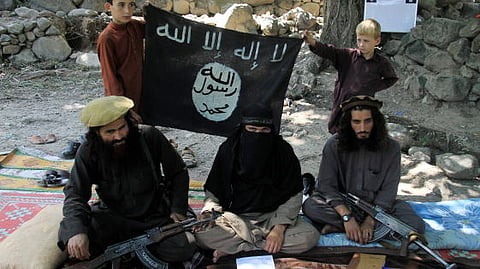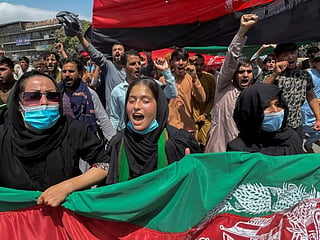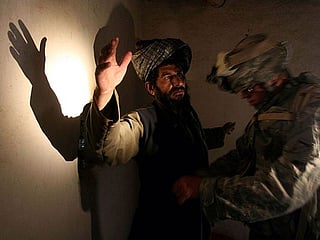What is Daesh threat in Afghanistan?
Group said to be behind blasts today; considers Taliban its enemy

Kabul: A suspected suicide bomb exploded outside Kabul airport on Thursday, killing more than 70 people, including 13 US troops, a Taliban official said, after the United States and allies urged Afghans to leave the area because of a threat by Daesh. The dead also included children.
What is Islamic State-Khorasan?
Months after Daesh declared a caliphate in Iraq and Syria in 2014, breakaway fighters from the Pakistani Taliban joined militants in Afghanistan to form a regional chapter, pledging allegiance to Daesh leader Abu Bakr Al Baghdadi.
The group was formally acknowledged by the central Daesh leadership the next year as it sunk roots in northeastern Afghanistan, particularly Kunar, Nangarhar and Nuristan provinces.
It also managed to set up sleeper cells in other parts of Pakistan and Afghanistan, including Kabul, according to United Nations monitors.
Latest estimates of its strength vary from several thousand active fighters to as low as 500, according to a UN Security Council report released last month.
“Khorasan” is a historical name for the region, taking in parts of what is today Pakistan, Iran, Afghanistan and Central Asia.
What kind of attacks has it carried out?
Daesh’s Afghanistan-Pakistan chapter has been responsible for some of the deadliest attacks of recent years.
According to UN and US military assessments, after the phase of heavy defeats, IS-Khorasan now operates largely through covert cells based in or near cities to carry out high-profile attacks.
What is its relationship with the Taliban?
While both groups are hardline Sunni Islamist militants, there is no love lost between them.
They have differed on the minutiae of religion and strategy, while claiming to be the true flag-bearers of jihad.
That tussle has led to bloody fighting between the two, with the Taliban emerging largely victorious after 2019 when IS-Khorasan failed to secure territory as its parent group did in the Middle East.
In a sign of the enmity between the two jihadist groups, Daesh statements have referred to the Taliban as apostates.
How has Daesh reacted to Taliban victory in Afghanistan?
Not well. Daesh had been highly critical of the deal last year between Washington and the Taliban that led to the agreement for withdrawing foreign troops, accusing the latter of abandoning the jihadist cause.
Following the Taliban’s lightning takeover of Afghanistan, a number of jihadist groups around the world congratulated them - but not Daesh.
One Daesh commentary published after the fall of Kabul accused the Taliban of betraying jihadists with the US withdrawal deal and vowed to continue its fight, according to the SITE Intelligence Group, which monitors militant communications.
What is the threat at Kabul airport?
US officials say Kabul airport, with thousands of US-led foreign troops surrounded by huge crowds of desperate Afghans, is under high threat from IS-Khorasan.
A flurry of near-identical travel warnings from London, Canberra and Washington late Wednesday urged people gathered in the area to move to safer locations.
They have not provided any specific details about the threat.
“ISIS-K is a sworn enemy of the Taliban, and they have a history of fighting one another,” Biden said Sunday.
“But every day we have troops on the ground, these troops and innocent civilians at the airport face the risk of attack from ISIS-K.”
Some military transports taking off from Kabul airport in recent days have been seen launching flares, which are normally used to attract heat-seeking missiles.









